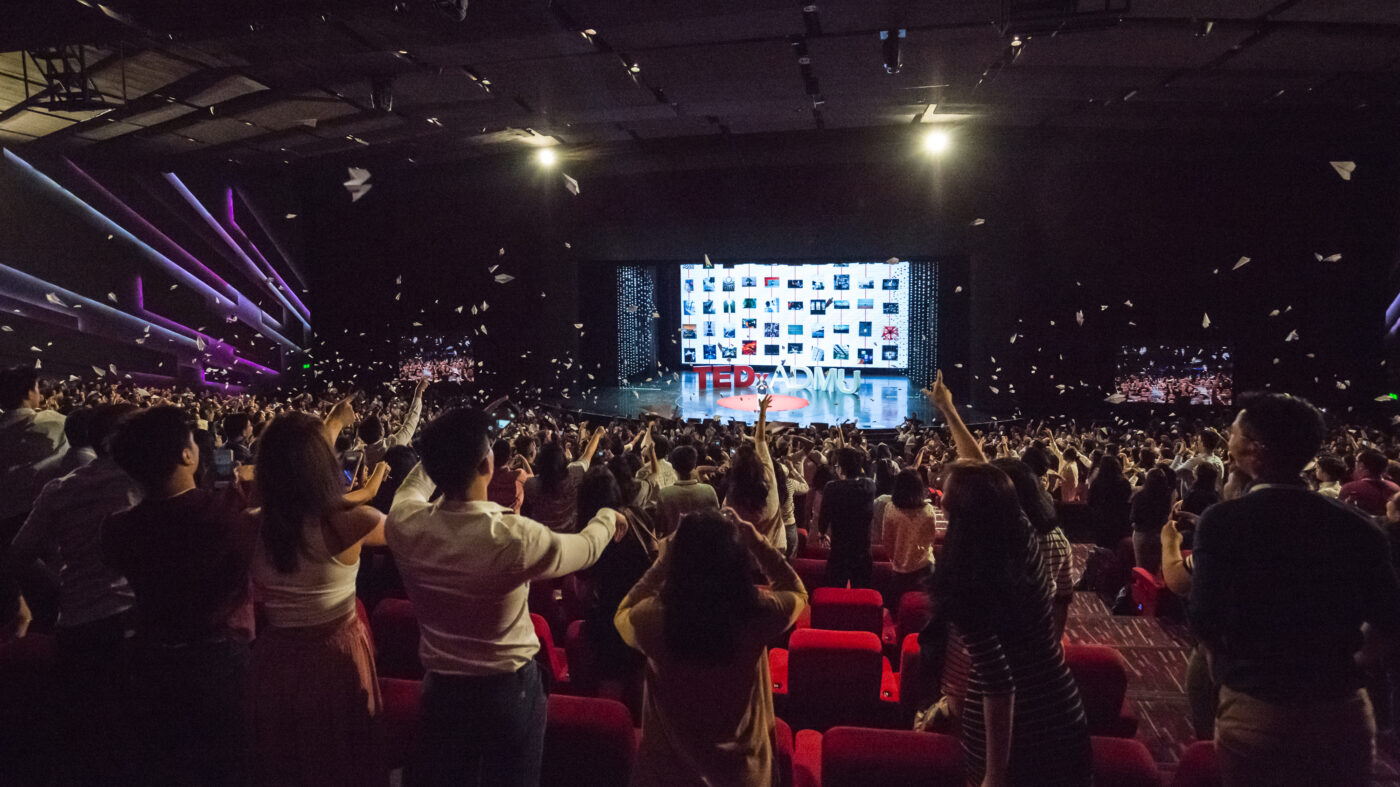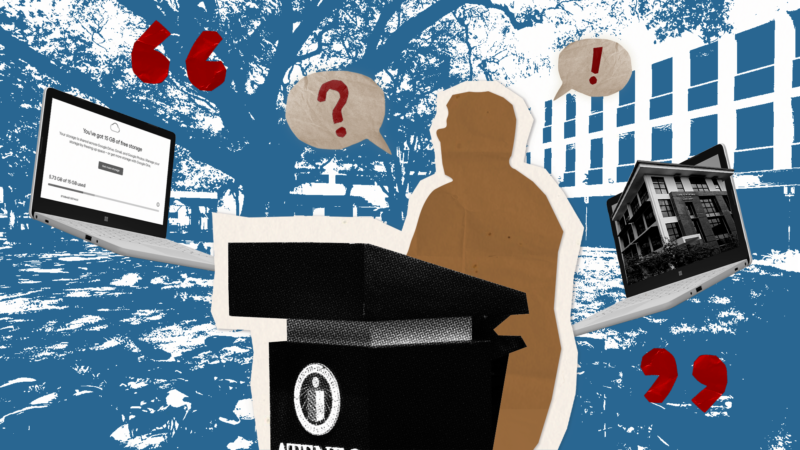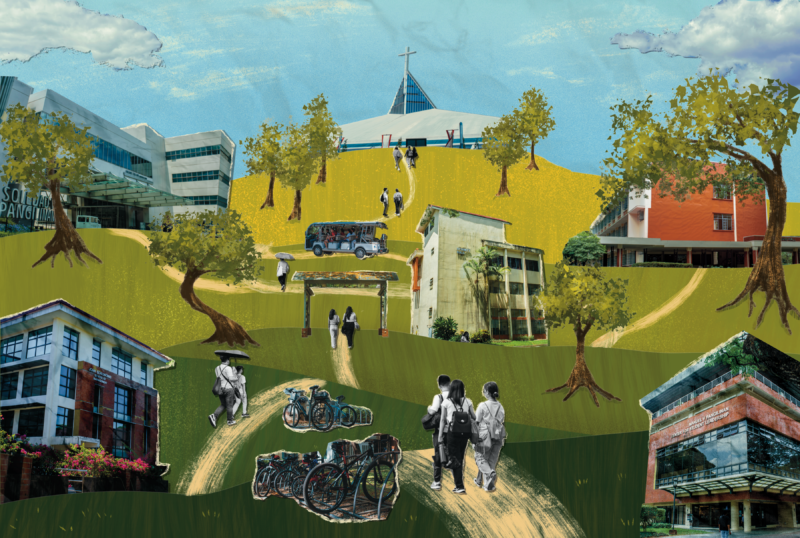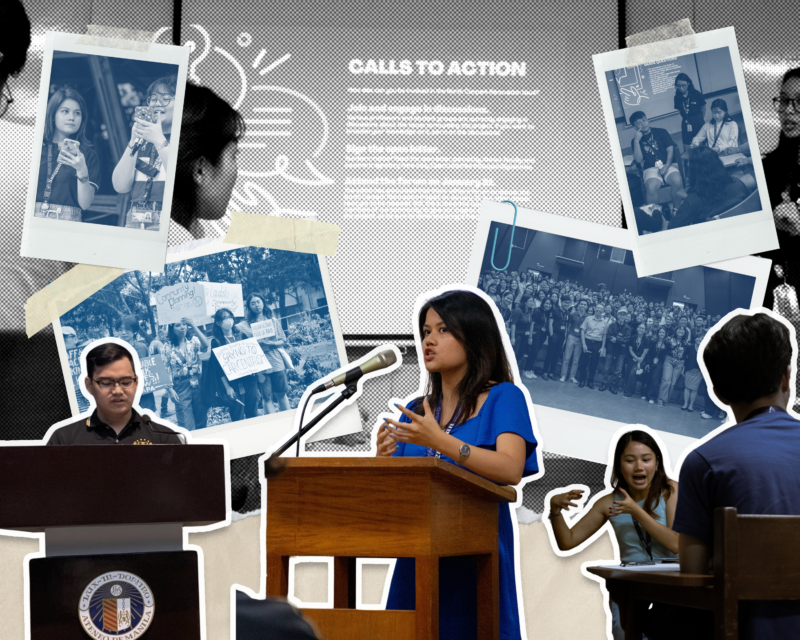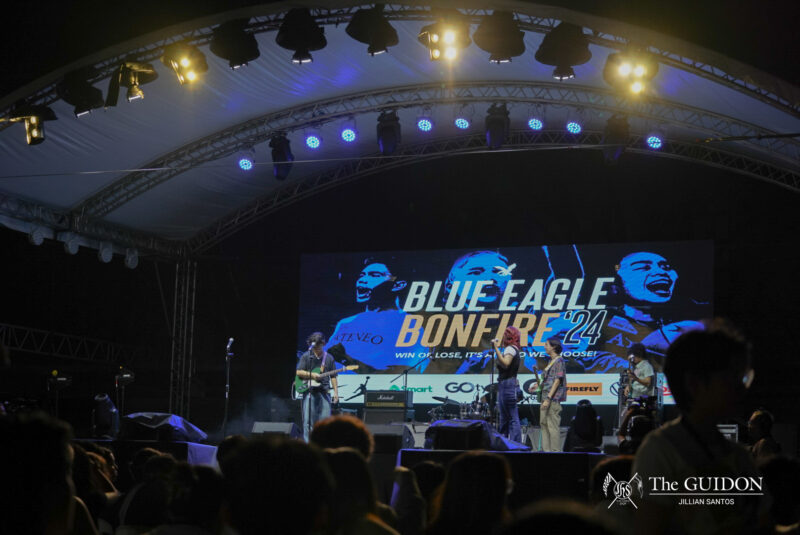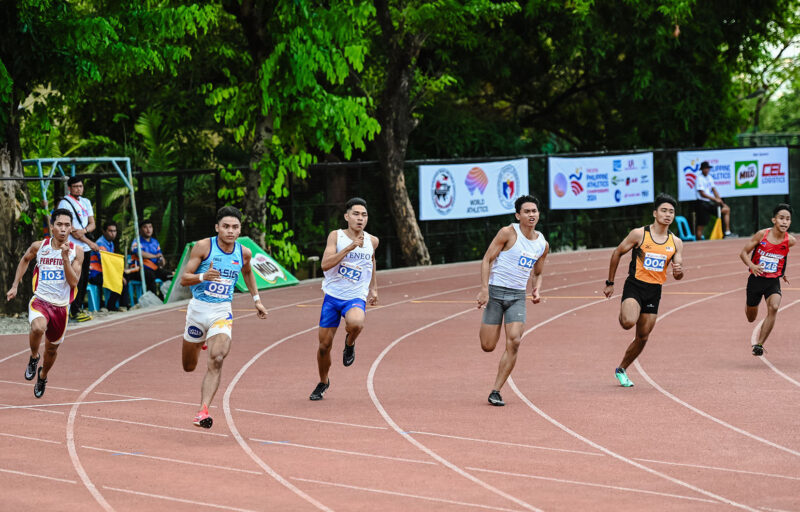AUDIENCE MEMBERS were treated to a wide array of perspectives as speakers weighed in on issues as diverse as architecture, music, and human rights during TEDxADMU: Viewpoints held on March 12 at the Newport Performing Arts Theater in Pasay City.
This is the fifth TEDx event to be organized by the Ateneo Junior Marketing Association (AJMA).
British journalist and social entrepreneur Thomas Graham, brand and marketing strategist Manny Gonzales, advertising expert Jeoffrey Estaris, and CEO Mylene Abiva spoke about their respective passions and advocacies.
Also in attendance were Philippine microsatellite Diwata-1 engineer Paolo Espiritu, architect Angelo Mañosa, and human rights lawyer Cathleen Caga-anon to deliver talks relevant to their respective fields.
Hidden gifts
For Graham, his time working in Gawad Kalinga (GK) opened his eyes to what he called the “genius” of the poor. Graham said that the genius of the poor lies in two deeply Filipino values anchored on solidarity: bayanihan and walang iwanan.
“I saw in the communities of Gawad Kalinga I visited, I saw how slums really were being transformed, one community at a time, into colorful and peaceful communities like this,” he said.
Graham said his experiences with GK moved him to found Make A Difference Travel, a social tourism platform whose aim is to “create fun and fulfilling experiences in Gawad Kalinga communities and other communities all across the Philippines.”
“I wonder if it’s time for Filipinos themselves to be reminded of the potential for genius all around you,” he said.
For Gonzales, music was “beautifully loaded with codes which made songs more engaging, captivating, and intriguing.”
According to him, songs in the 80s reflected social issues during that time, and tried push boundaries. Songs in the 90s reflected change on a more personal level, one that affected local communities, rather than wider societies and nations.
Compared to music in these time periods, Gonzales said that music in the present day seemed to be the product of “lazy songwriting.”
“There is a myth right now, circulating that grabe ‘yung generation ngayon. Hindi na marunong magsulat ng music. Hindi na marunong um-appreciate ng magandang music (They do not know how to write music. They do not know how to appreciate good music),” he said.
However, he said that today, deeply coding song messages for expression is no longer necessary and most of the roles of music have been taken over by social media.
“Music now has more freedom to manifest itself in other ways … [M]usic has the ability to take on different roles and dimensions in society and culture as called for by the changing times,” he said.
Developing an edge
According to advertizer Jeoffrey Estaris, the recent development of digital media as a medium for advertising changed the “rules all over again.”
Because of this, he said that the old rules needed to be forgotten: forget time limits, one-to-many [marketing], high production, and story “telling.”
However, Estaris said that despite these advertising tricks, the main point of advertising was to present genuine stories.
“The reality is [that] the one thing that you should never forget is that at the core of what a good story is a basic human truth that is told with sincerity or intention,” he said.
Abiva, on the other hand, saw robotics as a way to educate students and give them an edge.
“I told myself, ‘Hindi na tayo magme-memorize ng formulas. Kayo po ay gagawa ng experiments and through robotics, then you will learn physics, and it will be a fun way of learning physics,’” she said.
Moreover, Abiva said that the field of robotics has the potential to revolutionize the country.
“We need all these industries – kailangang ng bansa natin ng thinkers, critical thinkers who would help create products and not [merely] be consumers of products,” she said. “Robotics might seem complicated, but it’s for everyone.”
Creation, culture, and communities
Haraya Labs founder Paolo Espiritu lamented how Filipino students had little access to hands-on learning in terms of science. He said only 13% of Philippine schools have science and computer laboratories.
“Without these [science] facilities, we are slowly becoming a society without science,” he said. “You know what’s a million times worse than having no science? It is having wrong science.”
His solution is a virtual reality satellite stimulator, which is accessible, affordable, and capable of teaching students various subjects such as robotics, chemistry, and even road labs, through virtual reality.
“The best way to learn is to do. And these virtual reality apps help us realize what we want to become,” he said.
Architect Angelo Mañosa explored how architecture can balance man’s needs and the environment at the same time through the bahay kubo.
“The bahay kubo‘s contribution to architecture is not just its form and function, but its pure and honest design. This design is based on intuition, common sense, and climate,” he said.
He also discussed issues architects tackle when trying to balance culture and design, such as how they can bring the sense of pride in innovating Philippine design, and how they can help with climate change.
“We challenge ourselves with these questions every day with the ideology that architecture must be true to itself, its land, and its people. The ideology makes us wake up every day and showcase the best of Philippine architecture to the world,” he said.
Cathleen Caga-anan, Program Officer for the Women’s Rights Desk of the Ateneo Human Rights Center, discussed human rights and their nuances in the contemporary context.
She said systemic inequalities prevent a lot of communities, such as those of indigenous people and women, from achieving their human rights.
“I think that collective action is one way for us to resolve this. Just imagine, lending your voice to the indigenous peoples, or lending your voice to women who have been silenced because of violence, or helping out someone who can’t defend himself because due process has been taken away,” she said.

